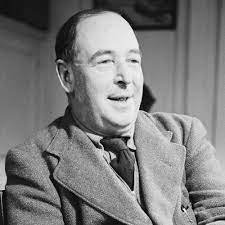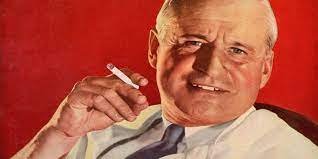3.7 New Operating System
Listen to the blog:
Click here to Subscribe and receive a new copy in your inbox each week.
Which Comes First, Experience or Understanding?
Last night, I attended a book study on Mere Christianity by C. S. Lewis and was struck by the deep interest in understanding. I was troubled during the night by the thought, "Why so much interest in understanding instead of experiencing?" Do you know how when you wake during the night, or even just rise to the level of light sleep, thoughts will keep repeating themselves? Understanding vs. Experience. Shouldn't I want to experience God rather than just know about him? Can one truly understand God? Does this desire to understand come from a deep need to control things? When Moses asked God about himself, he said, "I am that I am!” Do you understand to experience or experience to understand? Those kinds of thoughts.
Then, this morning, I read, “Experience will transform your life; understanding comes in only if you want to transform others' lives.” Or, to put it slightly differently, “Experience will transform your life; understanding comes in only if you want to help others transform their lives.” "That's it," I said as the sun began to lighten the sky through the barren pecan trees out my office window. This drive to understand does not come from the unholy desire to control but a most holy desire to help others experience transformation.
That's the proper order: experience, understand, and help others. It becomes a virtuous cycle. As I help others, my experience and understanding intensify - so that I can help others. In contrast, understanding for the sake of understanding, or to be known as someone who understands, does not intensify the experience and create this virtuous cycle. Why? It’s the transformed life through experience that draws interest from others rather than knowledge for its own sake. The untransformed life will not attract because it has no credibility.
For example, I once went to a doctor who turned out to be an obese smoker. I didn't go back.
So, I live with the question, "Why do I want to understand? Is it merely for understanding’s sake or to be able to help others?” It's experience first, to have my life continually transformed and understanding second, to help anyone else who may have an interest.
Nicodemus was Attracted to Jesus’ Life
Today, we’re looking at how Jesus reboots Nicodemus' idea of judgment. Remember, he was drawn to the rabbi after seeing the actions of Jesus’ transformed life. “Rabbi, we know that you are a teacher who has come from God. For no one could perform the signs you are doing if God were not with him.” The primary motive for his actions was not to attract attention but to help others; however, when someone unselfishly helps others, it attracts attention.
Nicodemus and I tend to overcomplicate things just because they are in scripture, but this is pretty basic stuff. His Old Testament concept of judgment was shaped by the reality of kings whom you might be brought before to have your actions judged “good or bad” and “reward or punishment” handed out. In his present-day Jerusalem, he was more concerned with the occupying Romans. That abiding threat was designed to keep people in line, like, "Just wait till your daddy gets home!” But remember when you had done something good that you wanted to show your dad, you couldn't wait for him to get home. Right? Watch how Jesus puts it.
19 And this is the judgment, that the light has come into the world, and people loved darkness rather than light because their deeds were evil. 20 For all who do evil hate the light and do not come to the light, so that their deeds may not be exposed. 21 But those who do what is true come to the light, so that it may be seen that their deeds have been done in God.”OK, let's say Daddy has just pulled into the driveway, and you have done something today that you shouldn't have. Do you run to him and tell him? Or, do you run to your room? Life exposes me and reveals me to me - and others. My actions determine whether I experience the “fear of being found out” or the “joy of being known.” It doesn’t matter what I say I believe, but how I act, which is how I believe. Does it cause me to seek the light and move toward it or away from it?
Actions Speak Louder than Words
“Deeds, do evil, and do what is good;” it's unmistakable that Jesus’ concern was for what people do, not what they say they believe. It's not even what I believe about “who Jesus is” but how this affects my daily actions toward others. It is behavior that saves or condemns. I am continually saved through him by allowing his life to enlighten mine and produce physical actions that are in line with the truth. Actions are the evidence that acquits or convicts. And with that, Jesus might've said, "I rest my case!” My “verdict” will hinge on how I respond daily, not on a capricious ruling by a strict God in the heavens.
It was about this point that I had to ask myself, "But why does Jesus care about my behavior? To each his own, right?” The answer takes me back to the beginning of this post. Having experienced a transformed life, he wants to help Nicodemus and me understand how to transform our lives. It's part of the virtuous cycle:
Having lived with a clear conscience, he wants me to experience that.
Having lived with healthy relationships, he wants me to experience that.
That's the workaday definition of love, to will the highest good for another, and it's the natural outgrowth of a transformed life.
Escaping Gravity
However, I must face a crucial truth.
My innate instinct for survival or self-preservation has a gravitational pull so strong that it requires a bold belief to overcome it.
Positive thinking, self-help, and affirmations won't do it. Jesus understood this, and at our deepest level, we know this too. Shifting my focus from "what's in it for me" to "what's in it for my neighbor" requires a radical belief - one as audacious as the idea that the Creator of the Universe sent his son to model the behavior that would save me and my neighbor from my selfish actions. This “worldwide idea shift” will spark the energy required to change our “baked-in” behavior and be the salvation of the individual and the global community.
“The life of sensation is the life of greed; it requires more and more. The life of the spirit requires less and less.”
Something to Believe In + Someone to Follow
To affect this humanly impossible paradigm shift, not only does one need a bold, unbelievable belief but also a credible role model to follow. We need something to believe in and someone to trust. Essentially, we need a source of faith and a reliable figure to follow. That’s where Jesus comes in. He pursued truth, experienced it, and came to embody it. He asked his disciples to follow him and learn to do the same. That still, quiet voice within makes the same request today.
Hold on! There’s a missing ingredient, and it’s the secret sauce of spiritual life, the missing piece of the salvation puzzle.
Find a coach, a real, live person who is further along and more experienced and will serve as a guide, an accountability partner, and a friend. We know this in most other areas of life. That’s why we have a piano teacher, a voice coach, a French teacher, a golf coach, and a personal trainer. But when it comes to faith, we want to remain fiercely independent. When we look closely, we see that John had Jesus, Timothy had Paul, Plato had Socrates, and Aristotle had Plato. I have had Bill Thomas, a friend who has guided me, directly and indirectly, for over four decades. He has done so directly by giving me counsel when sought and indirectly by allowing me to observe his life at close range. What a difference this has made! Find a coach.
A New Operating System + Manual + Guide
Because these points of belief and role models are foundational, let’s examine them from another angle. I think about my life as having two operating systems, like Windows or iOS. One system runs on the information from my physical body, seeking survival and self-preservation by working toward security, power, success, and wealth. The other system runs on information received in my consciousness, seeking the benefit of others. It seeks peace, joy, truth, and the highest good of others. If I mix the two operating systems, I will receive numerous error messages.
Jesus has told Nicodemus that he needs an entirely new operating system, but he put it in his own words - "born again" or "from above.” Just consider what it would take for you to decide to change your computer operating systems - to go from PC to MAC or MAC to PC. You would need an overpowering belief and someone to guide you.
John Makes it Clear
John took great pains to record this whispered and detailed conversation between Jesus and Nicodemus. He intended to make it clear what Jesus would teach his disciples and others as he left Jerusalem and headed toward the outskirts.
22 After this Jesus and his disciples went into the region of Judea, and he spent some time there with them and baptized. 23 John also was baptizing at Aenon near Salim because water was abundant there, and people kept coming and were being baptized. 24 (John, of course, had not yet been thrown into prison.)Baptism is a symbol, a bold, irreversible action to mark the adoption of a bold new belief, a new operating system. We see this type of boldness when the new soldier takes an oath and then has their hair cut and puts on a new uniform. Also, when the newly married couple, after taking vows, don wedding rings and celebrate.
These bold actions reinforce the change in consciousness or mindset necessary for embracing new life situations. The young man is now a soldier, the man is now a husband, and the lady is now a wife.
John is also demonstrating how these individual actions are raising awareness and inspiring others. Each new “baptism” contributes to a shift in the collective consciousness. What does this mean for us? We transform the world by changing our world, by changing ourselves.
Key Takeaways
There is no one outside of me waiting to reward or punish me. Any judgment is contained within my actions themselves, which come from inside me.
To change my life from sensation-based to spirit-based takes an audacious belief.
I need a role model and a real-life coach.
In the next segment, we will see both John the Baptist and Jesus follow the guidance of their spirit in the evolution of their roles.










